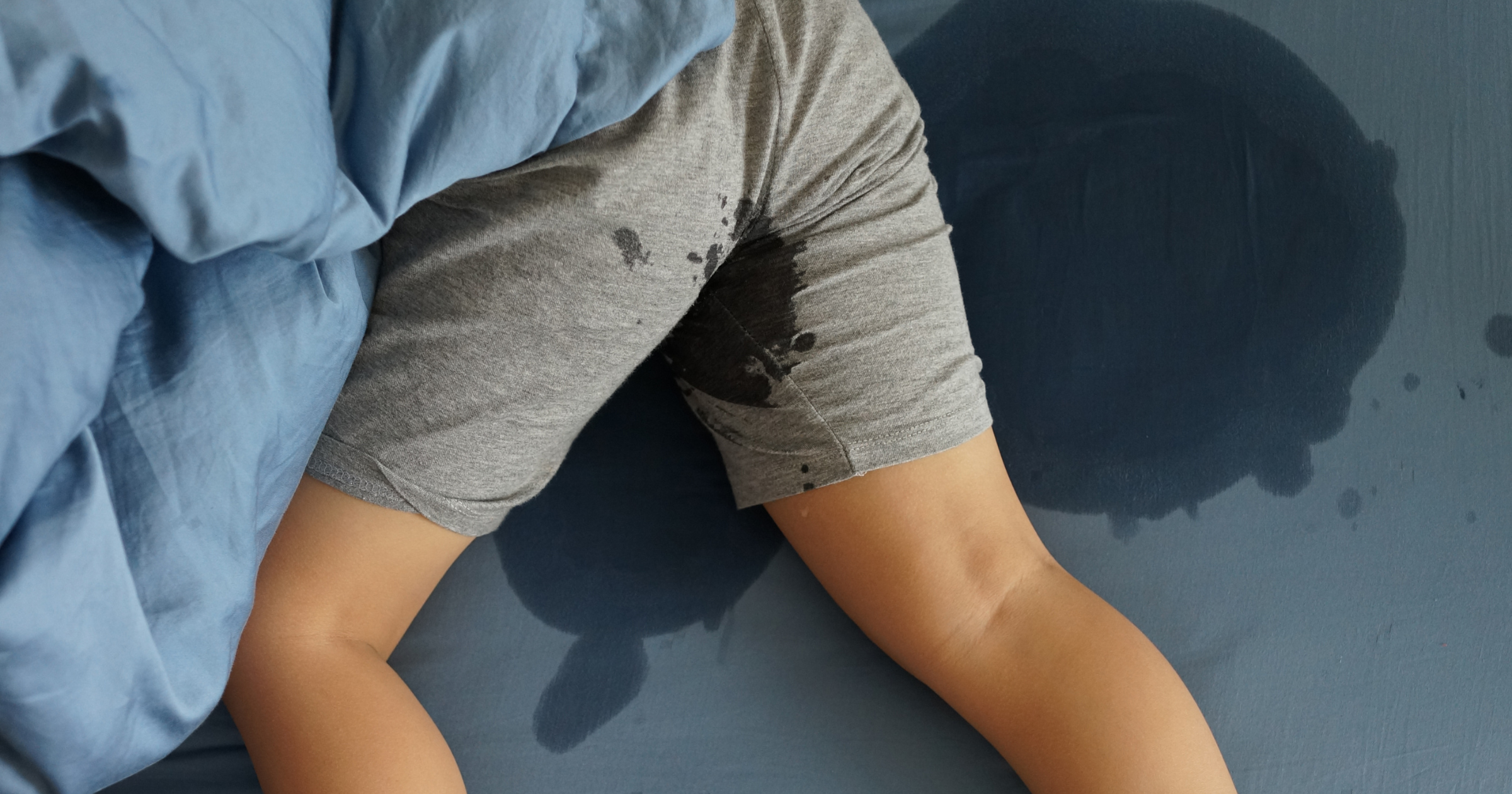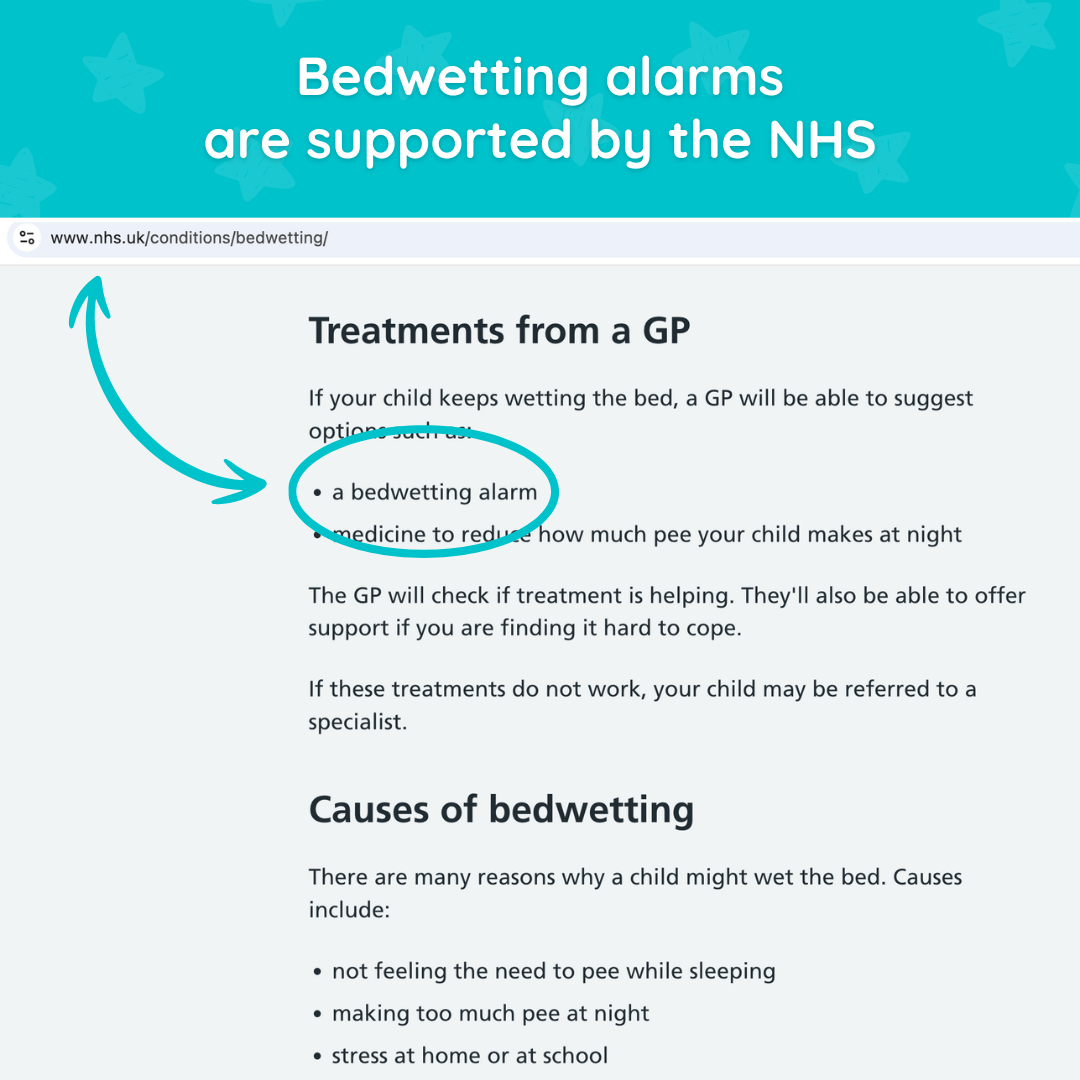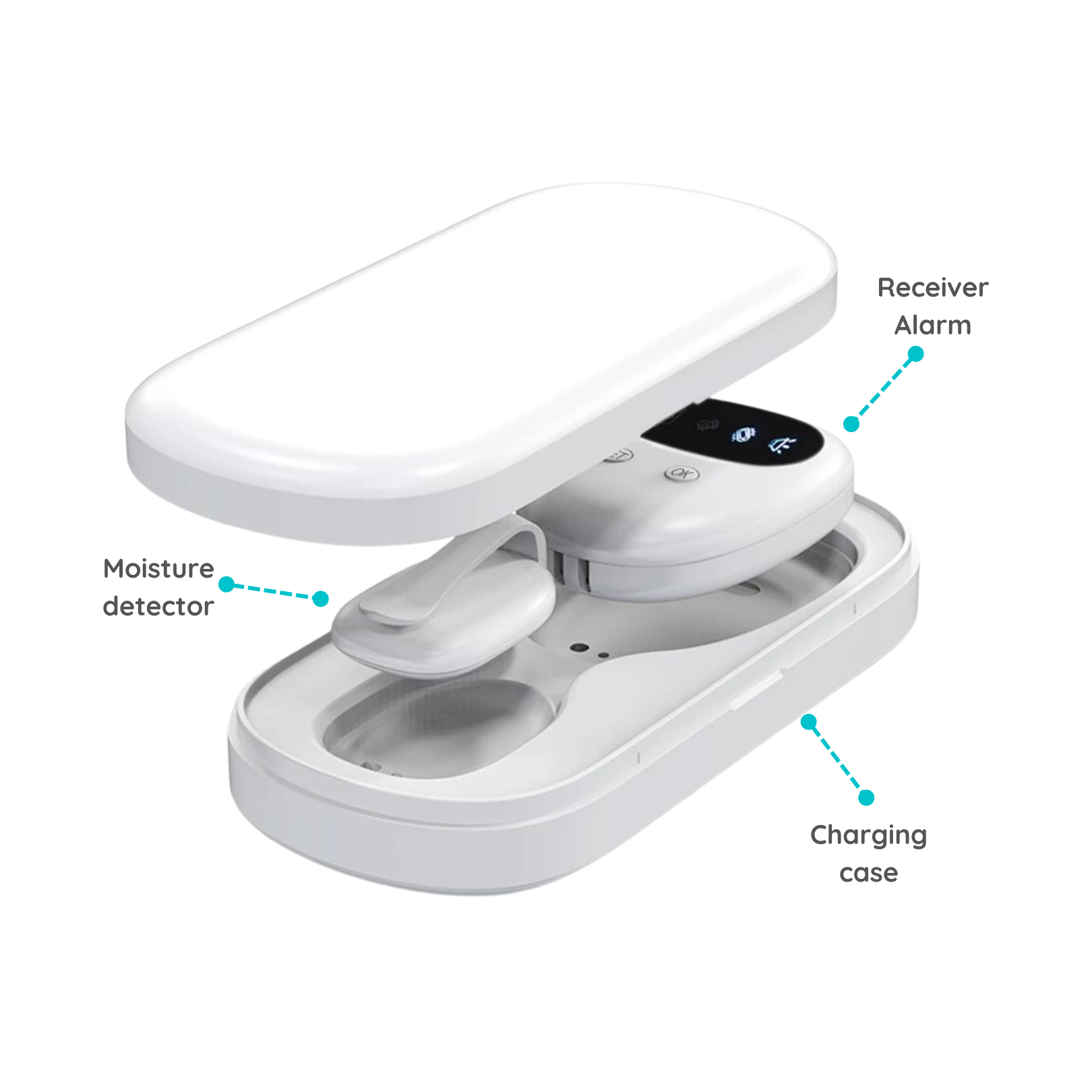Bedwetting, also known as nocturnal enuresis, is a common issue that affects many children. While it can be distressing for both the child and parents, it's essential to understand that bedwetting is not a behavioural problem, and it is usually not a sign of any underlying medical condition.
So, what causes bedwetting in children?
There are many factors that can contribute to bedwetting in children. Some of the most common causes include:
Developmental delays
Some children who wet the bed may have developmental delays that affect their bladder control. A developmental delay is not always an issue as children all develop at different rates but if you are concern, consult your GP.
Genetics
Children with a family history of bedwetting are more likely to experience the issue.

Small bladder
Sometimes we forget that children simply have smaller bladders than us adults and children with smaller bladder capacity may not be able to hold urine for an entire night, leading to bedwetting.
If your child suddenly starts wetting the bed and there are no obvious causes, it may be worth taking a trip to the doctors.
Hormonal imbalances
Some children may not produce enough of a hormone called antidiuretic hormone (ADH), which helps the body retain urine while sleeping.
If this hormone is in short supply then your child may need to urinate more often, which can lead to nighttime accidents.
Constipation
Chronic constipation can cause the rectum to press against the bladder, leading to involuntary urine leakage. If your child has been suffering with chronic constipation, you may want to visit your doctor.

Urinary tract infections
UTIs can cause bedwetting in children, as they can cause irritation and inflammation in the bladder but be aware, this isn’t likely to be the issue if your child wets the bed on a regular basis.
If your child suddenly starts wetting the bed and there are no obvious causes, it may be worth taking a trip to the doctors.
So how can you help your child overcome bedwetting?
bedwetting is usually a temporary issue that resolves on its own.
Well fortunately, bedwetting is usually a temporary issue that resolves on its own. However, in the meantime there are several things that parents can do to help their children, including;
Manage fluids before bedtime
Encourage your child to drink plenty of fluids during the day and avoid drinking too much before bedtime as a full bladder and a tired child may result in an accident.
Reassure your child
Bedwetting can be distressing and embarrassing for a child so be sure to reassure them that it is common and nothing to be ashamed of.
Getting enough sleep
If your child is overly tired they may not wake up from the feeling of needing to pee, so make sure your child is well rested and getting enough sleep at night (easier said than done, we know)
Your child is likely not wetting the bed on purpose
Reward your child for dry nights
Consider creating a reward system for your child if they manage to stay dry throughout the night. Whilst this may not directly impact your child's bedwetting, it can help lift their spirits about the situation if it has been getting them down.
Use night time nappies
If your child wets the bed more than twice a week, it may be worth putting them in night time nappies. Whilst you may be concerned that this will encourage them to continue wetting the bed, this is not the case.
Your child is likely not wetting the bed on purpose so putting them back into nappies will simply save your household from the hassle of washing bedding on a daily basis.
Use a Bedwetting Alarm
Bedwetting alarms, like the BedBells Bedwetting alarm, can be particularly effective in helping children wake up when they need to go to the toilet.
Use waterproof bed pads
Waterproof bed protectors such as our Piddle Pads will stop your child's mattress from getting stained and smelly, it’ll also make those midnight bedtime changes fast, so that everyone can get back to sleep in no time at all.
Bedwetting is normal and common and is likely not something to worry about.
In conclusion
Bedwetting is normal and common and is likely not something to worry about.
With patience and support, most children outgrow bedwetting and learn to stay dry throughout the night.











